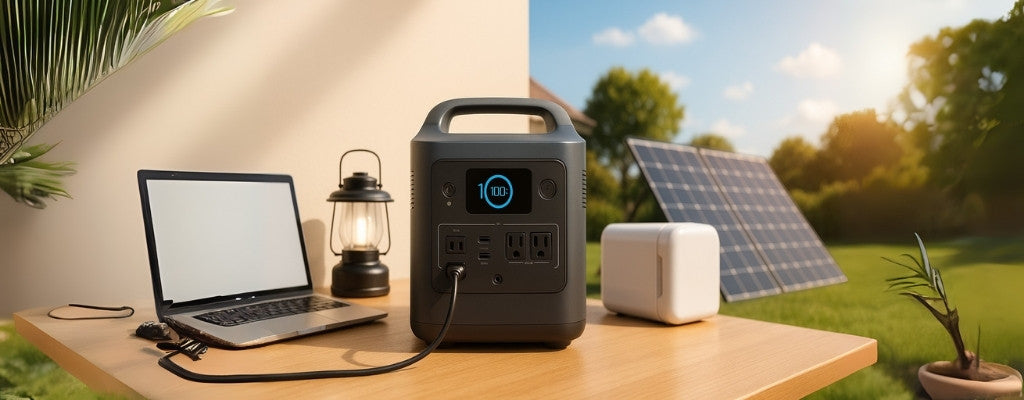
What is the Purpose of a Portable Power Station?
Ever grabbed your portable power station, only to find it dead right when you needed it? Short answer: Yes, you must charge it! Think of it like your phone—if you don’t keep it topped up, it won’t be there when you need it most. Regular charging ensures it’s always ready to power your essentials, whether you're off-grid, on the road, or dealing with a blackout. Stick around for the best charging methods, tips, and tricks to keep your power station running at peak performance!
Not sure which power station is right for you?
Take the quiz!
How to Use a Portable Power Station at Home
How to Connect Power Station to House for Emergency Backup
Required Equipment and Cables
To connect your portable power station to your home safely, you'll need a transfer switch. This device allows you to isolate your home's electrical circuits from the main power grid, preventing dangerous backfeeding. Always consult a licensed electrician for proper installation.
Installation Overview
Connecting to your home's electrical panel requires a professionally installed transfer switch. It enables a seamless shift from grid to backup power, protecting your appliances and household wiring.
Manual vs. Automatic Switches
What’s the Difference?
The main difference lies in the operation: - Manual switches require you to flip a switch to change the power source when the grid goes down. - Automatic switches detect the power loss automatically and immediately shift to the backup power from the portable power station. Automatic switches are more convenient but come at a higher price.

Portable Power Station Safety and Legal Tips
Avoiding Illegal Backfeeding
Why It’s Dangerous
Backfeeding occurs when you connect your power station directly to the grid without a transfer switch, which can be dangerous and illegal. Backfeeding allows electricity to flow back into the grid, posing a severe risk to utility workers who are working to restore power. It can also damage your appliances and your power station. Always ensure that your setup uses a certified transfer switch to prevent backfeeding and to meet legal safety standards.

Portable Power Station Charging & Travel Advice
Charging While Driving or Travelling
Using an Alternator
Many vehicles have a 12V DC outlet that can be used to charge your portable power station while driving. If your vehicle supports it, you can use the alternator to provide power to your station. Keep in mind that this method charges much slower than wall charging but is perfect for keeping your power station topped up during road trips or extended drives.
Where to Charge Safely
When you're traveling, safety is key. The best places to charge your portable power station are indoor wall outlets or solar panels. If you’re camping, look for campgrounds with solar stations or use powered rest stops. Always ensure you’re in a dry, safe location when charging your power station, especially when using it with solar panels or car outlets.




